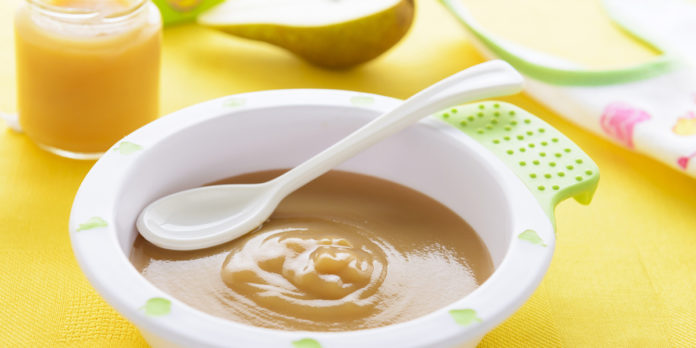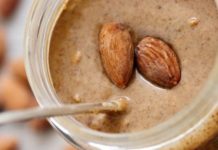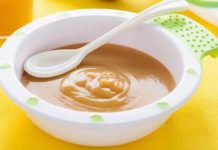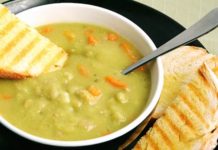This recipe for pear puree is ideal for babies who are starting complementary food. It contains no fat and only natural fruit sugars.
Preparation time: 5 minutes Cooking time: 20 minutes Difficulty rating: Easy
Age recommendation: As a puree, this is suitable for babies aged 6-7 months. Left as soft lumps, this recipe is suitable for babies 8 months and older.
Ingredients
Makes 10 serves
- 6 medium pears (500 g)
- 2 cups water
Method
- Wash, peel, core and dice the pears.
- Place in water in a pan and cook on medium heat stirring occasionally.
- They are cooked once soft, a deeper yellow colour, and they have a sweet fragrant smell.
- Place in a food processor and blend.
 |
 |
 |
Tips
- The consistency of the mixture will vary depending on the variety of pear used and how much cooking this particular pear needed and how much water it naturally contained. To make the puree thicker, place back in the pan on medium heat and cook to evaporate the fluid until the desired thickness is created.
- If the pear is too thick, use some boiled water to make it smoother.
- This is a great recipe for babies who are six months old and just starting complementary foods. When they first begin eating, babies are very sensitive to new tastes, so it’s a good idea to use recipes which contain a single food, rather than recipes which mix several types of fruits. Starting with single food recipes will make it easier for your baby to cope with the new tastes. Only combine foods when your baby has become used to eating each fo the foods alone. Try introducing one new food every 3-4 days and allowing your baby to taste that food 8-15 times to get them used to the taste.
- Give your baby pear puree after breastfeeding or formula. It’s okay if they only eat a couple of teaspoons at first. They will start to eat more as they get older.
Nutritional content
Nutritional analysis per 75 gram serve:

| Energy | 121.5 kJ 29.04 cal |
| Protein | 0.15 g |
| Total fat | 0 g |
| Saturated fat | 0 g |
| Carbohydrates | 6.4 g |
| Total sugars | 4.8 g |
| Fibre | 1.8 g |
| Sodium | 0 mg |
| Cholesterol | 0 mg |
| Potassium | 57.5 mg |
| Calcium | 3.5 mg |
| Iron | .09 mg |
| Zinc | .06 mg |
References
- Advertisement -
Date Created: February 29, 2012
Date Modified: September 3, 2018 


 (8 votes, average: 4.50 out of 5)
(8 votes, average: 4.50 out of 5) 









